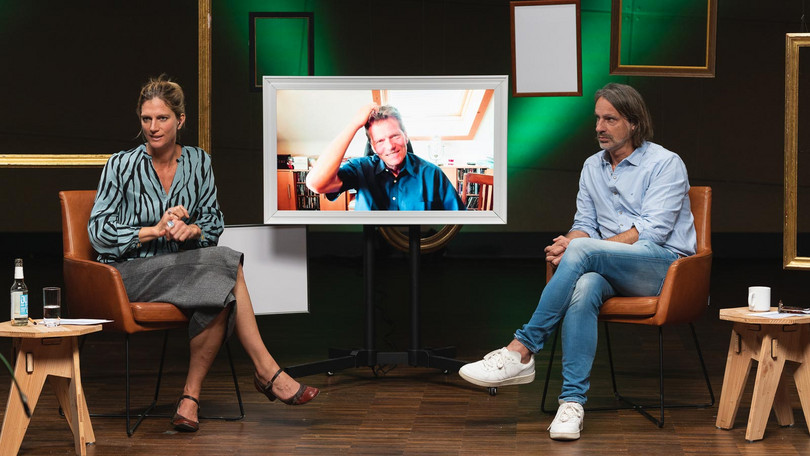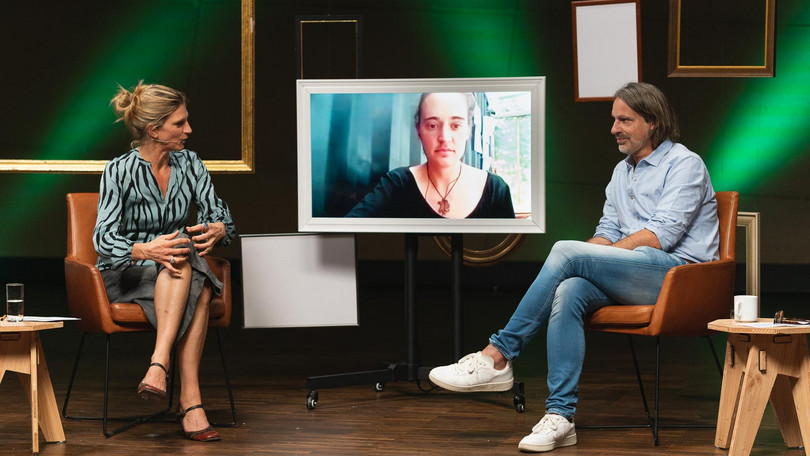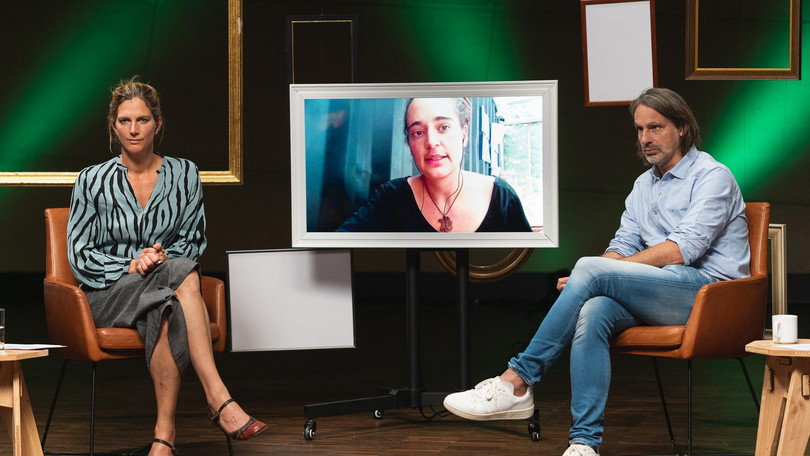Carola Rackete and Hartmut Rosa at the Utopia Conference 2021: „Transformation must be tangible!“
2021-08-24 At the opening of the Utopia Conference 2021, Richard David Precht and Maja Göpel talk with the sea rescuer Carola Rackete and the sociologist Hartmut Rosa. Together they explore the question of how we can turn the crisis into an opportunity. This year, for the first time, more than 120 utopia camps are also taking part in the discussion at various locations in Germany and beyond.
"In moments of crisis, the future feels particularly open. We want to use this openness and reflect together: what do we want to preserve, what do we want to reshape and what would be better to say goodbye to?" asks host Maja Göpel at the beginning. "The window of opportunity is now open and so now is the time to get especially creative and think about how to realise our ideas and visions before it closes again," host Richard David Precht also emphasises.
However, parting with the familiar often evokes fears in people - for example, the fear of losing possessions and wealth in the course of an ecological transformation. In order to reduce these fears, transformation must be made tangible, explains Carola Rackete: "We have many academic debates, but these are not accessible to many people. Experiencing and participating makes it easier to see the possible alternatives and also to implement them. In this way, more people can participate in the debate and also more people can be convinced." As a utopian objective, Carola Rackete appeals for avoiding any "us versus them" division. Far from dualisms, we should again see ourselves more as part of the web of life that is nature. In her opinion, there is not one concrete path of transformation, but a multitude of possible alternatives, far from capitalism and socialism. She therefore calls on participants of the Utopia Conference to listen to as many utopias as possible and to visit them directly on site and experience them for themselves.
Hartmut Rosa also emphasises the importance of actually experiencing utopias: "We have to go beyond the mere image. We usually quickly agree on values, but these are only cognitive. The question is how we live them, how we experience them." Central to his reflections is the concept of property and the associated relationships we cultivate with our fellow human beings, things and nature. Hartmut Rosa appeals for a reinterpretation of the concept: instead of appropriating things only as possessions and seeing them primarily as obligations, the focus should rather be on the sense of responsibility and the relationship of care. "The moment of care turns the thing into something valuable that is to be protected and preserved. This applies to material things as well as to our fellow human beings and nature," explains Hartmut Rosa. Detached from the concept of ownership and its separating forces, such an understanding of ownership could possibly take away people's fear of loss. The unconditional basic income is also a possible alternative in this context.
Both speakers emphasise that the Utopia Conference provides an important starting point for utopian thinking. However, they also say that we should not dwell too long on theoretical debates, as utopia has to be lived. In his closing words, Hartmut Rosa therefore calls on us: "If we take what we discuss here into everyday life and into our innermost being, then perhaps utopia will one day become reality".
The Utopia Conference will take place from 24-25 August in Lüneburg and the 120 Utopia Camps spread throughout the Federal Republic and beyond, with the aim of strengthening the dialogue between science and civil society. We look forward to the rest of the programme, exciting food for thought and utopias from Joe Kaeser, Eckart von Hirschhausen, Anna-Nicole Heinrich, Diana Kinnert and Harald Welzer, among others.



